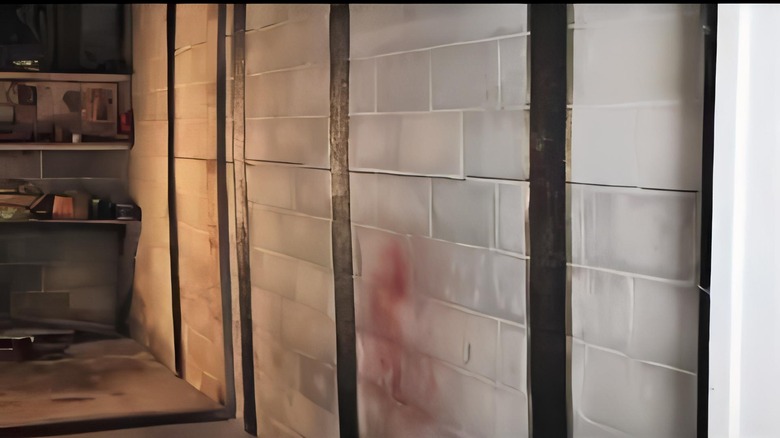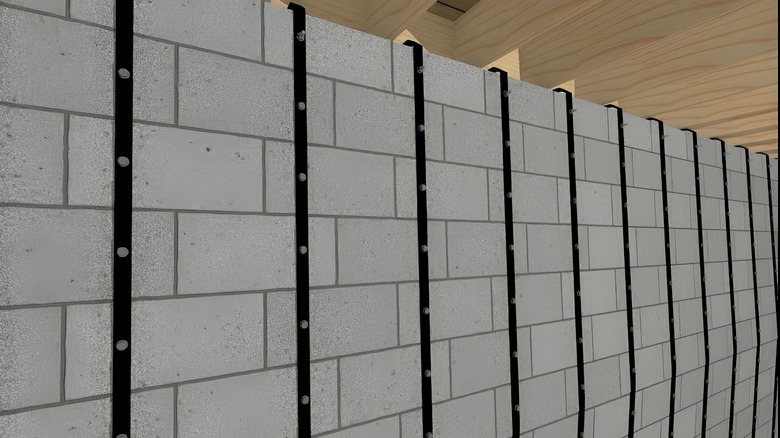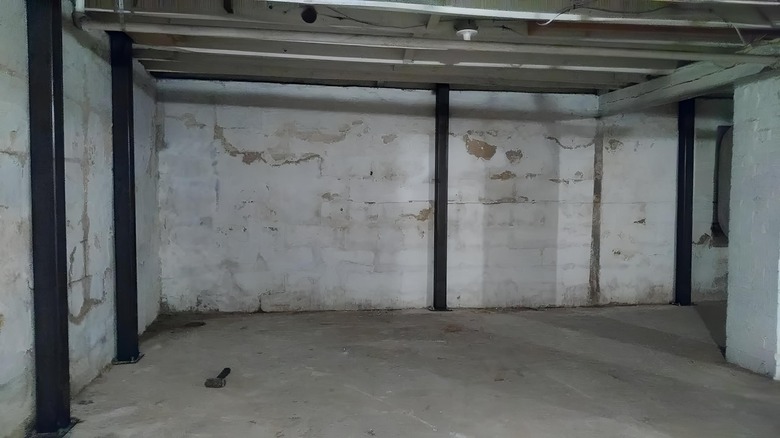The Fastest Fix For A Bowed Basement Wall
As a homeowner, it's very important to keep an eye on every part of your home to make sure everything is in good shape, including your interior and exterior walls. As EPP Foundation Repair says, a bowing wall is a wall that curves inward. This is particularly worrying if it is a retaining wall or in a basement. If this is something you are experiencing in your home, you might want to pay attention.
According to Helifix, bowing, tilting, or bulging exterior walls are usually a sign of decreased wall stability and typically arise due to heavy traffic vibrations, saturated ground around the home, or load increases (usually due to extra floors being added to a building.) Alternatively, if your walls aren't thick enough to support the height of your building, you may notice bowing walls. Fortunately, there is a quick and effective fix, especially if you're lucky enough to notice sooner than later.
Carbon fiber straps
Although there are many ways you can go about fixing your bowing walls, Permadry recommends that carbon fiber straps, also known as staples, are an excellent choice. However, it's important to note that if your bowing has exceeded two inches, you might need to think of other more heavy-duty options. They also remark that carbon fiber straps are one of the most budget-friendly and easy-to-use options for bowing walls. What's more, they don't require any excavating, so you won't have too much physical work to worry about.
According to Acculevel, since carbon fiber is often too smooth to be glued directly to your concrete wall, it is important to pick a strap system that addresses this issue. Depending on the finish of the wall, it is vital that the strap be attached securely. Make sure you read your manufacturer's instructions and information on the product before installing it on your walls.
Causes and prevention
Realseal says there are four main causes of bowing walls. The first is expansive soil, which is soil that expands and shrinks based on its water content. If the soil surrounding your foundation constantly shrinks and expands, it can cause your walls to bow. Water pressure, frost heaving, and lateral pressure can also result in walls bowing as they are all factors that can have an impact on the foundation of your home.
According to Family Waterproofing, there are steps you can take to prevent walls from bowing. They also note that water is one of the main culprits responsible for bowing walls, so it's critical that it's managed well. Make sure the land surrounding your home is pitched adequately (at least 5 degrees,) while making sure your gutters are intact, clean, and properly functioning for water disposal. And finally, make sure you have covers installed on your window wells.


